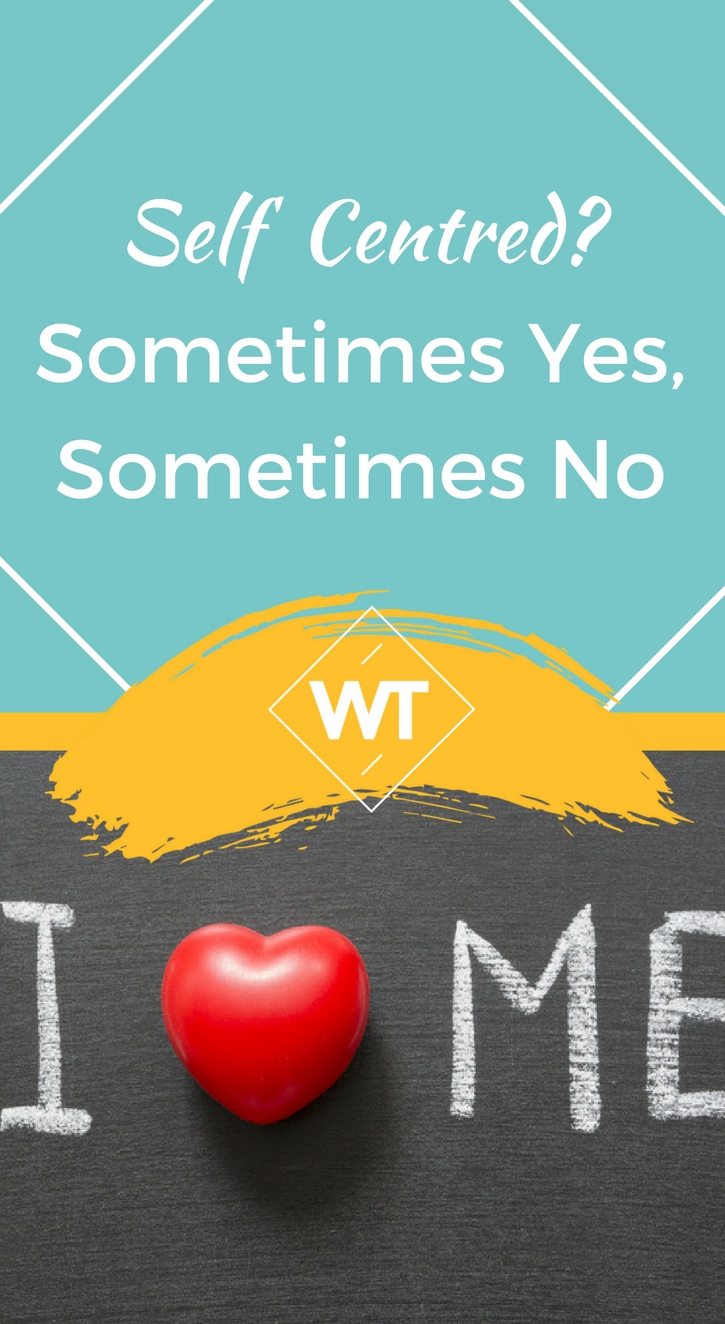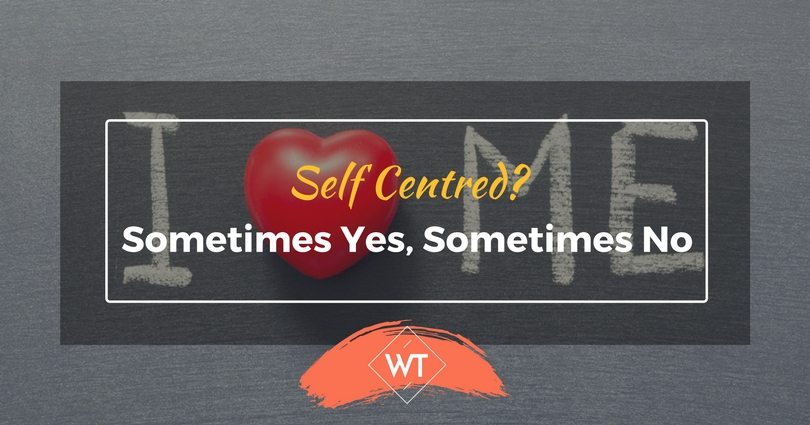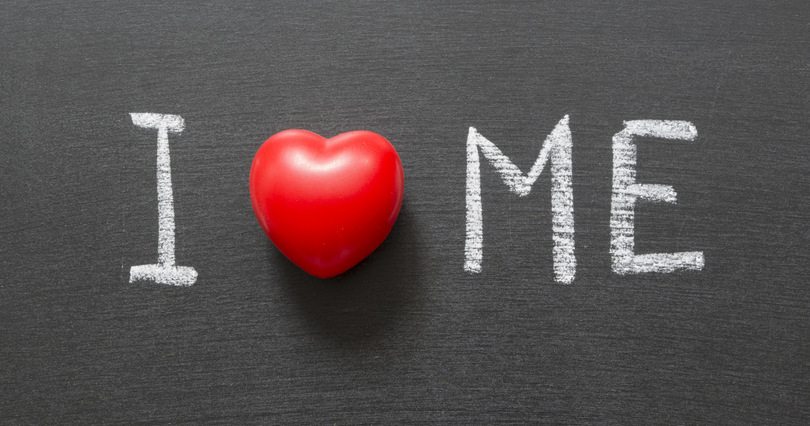Self-Centered? Sometimes Yes, Sometimes No

Being self-centered, when done properly, can actually be one of our best traits. As social animals and emotional beings, one key desire in most human beings is to feel important, to feel that they are wanted—that they matter. This moment of being self-centered is helpful, and even healthy for our sense of being.
Of course, if one goes by the observations of legendary American psychologist, Abraham Maslow, this need really kicks in once the basic necessities such food and water have been met. To the man walking around with an empty stomach and no means to fill it, self-importance really doesn’t matter—at least not as much as it does to the more fortunate among us, whose basic needs have been reasonably satisfied. That’s something to think about if you’re not feeling important enough in your own world—have your other needs been met?
Being self-centered when we feel important
Mainly this happens when we receive some form of positive attention from others. Sometimes it’s that call from a friend or relative to check on us when we’re down, or even times when we’re having a personal celebration. Sometimes it’s getting a glowing report on our performance at work, a great appraisal, a special responsibility – the ways are as many as there are people, but the result is the same: a deep sense of gratification. At those times being self-centered actually feels good—both to ourselves, and to the people around us that helped us achieve that goal.
Being self-centered when we don’t feel important
However, what happens when we find this “sense” of importance missing from our lives? When we don’t receive the amount or kind of attention we seek, especially from those who matter to us? We feel dismayed, dejected, and maybe sometimes even just plain empty.
However, the truth is that the world is not usually subject only to our own needs. Almost all of us are faced with fairly regular—if not daily—experiences of facing some form of neglect. Things like a lack of attention from our peers and seniors at work or friends and relatives in our personal lives can have a big impact if we let them. Everyone has his/her own life to attend to, and we may not always figure in their scheme of priorities.
For example, if I am attending to an urgent professional matter, I may not think of calling to check on friends. This does not make me care less for them. It’s just that the situation-at-hand demands my attention more than the call. When I get the time, I will make that call.
How to handle inattention
Maturity demands that the person on the receiving end of this ‘inattention’ realizes that I may have been caught up with some personal matter. In fact, ‘maturity’ is a most useful trait. It keeps us from taking offense at little things and allows us introspection and to give time and space to others even as we demand the same from them. It enables us to reach out to the bigger truth—a quality that comes in quite handy in almost all relationships.
I may be someone’s wife and someone’s daughter, but that does not mean that I can expect them to put everything away for me—pick up my calls whenever I call them, listen to me whenever I talk, get me what I want the moment I ask for it… Even those closest to us have limits on how much “self-centered” they can take.
This is even more true with professional relationships, where expecting such responses can be called foolhardy. At the end of the day, we all go to work to earn our dough and make something out of ourselves. In fact, even if you are not the “boss’ buddy” or a part of the “in-group”—as these are the places where ultra-high levels of personal attention at work are usually given—it may not really matter, so long as you deliver the chops where they count.
The benefits of inattention
In my years of working in offices and my interactions with professionals from all walks of life, I find that it’s sometimes better to not be at the center of attention in an office and instead count when it comes to the work because attention, especially in offices, can be as unpredictable as the wind. One day it’s blowing north and on another blowing south. Too much attention gives way to too much talk—not always favorable! Just ensure that the going is good, when it comes to appraisals and performance-reviews.
I’ve often wondered why celebrities often suffer from depression, even in their glory days. I guess a part of the reason lies in getting too much attention. Being important can have its fallout. It can create doubts and fears like: “am I really that worth it?” or “what will happen if I don’t matter anymore?”
It’s the same for children. Those who are showered with too much attention often end up getting spoiled and unprepared for a world where people do not have the time or the energy to focus on them all the time, the way their parents do. This can be terrifying to our ego. Too much importance gives a false sense of superiority to our ego and it becomes dependent on that external, ephemeral importance for it to survive.
Perhaps we could try to be a bit detached at times and maybe not take ourselves too seriously, because, nothing lasts forever—not even our very life! So, it’s really better to carry on with life and accept the inattention and neglect we may sometimes suffer, so that we may truly rejoice when the sun does shine on us!
What to do
The aim should be to toughen ourselves and learn to do things and be the people we are without always hoping for that importance that can come to us if we act or behave a certain way. Problems happen when we do things only to seek the attention that can come from them. That is being self-centered at its worst! It takes all the joy, if not the earnestness, out of us.
It’s much better to pay attention to ourselves and what makes us happy. Not being selfish, but believing in ourselves. It’s a better way of living than always counting on others for importance because the former is within our reach.
Conclusion
On a parting note, I should caution that too much inattention and neglect are just as harmful. Don’t just throw away your need for being self-centered. Sometimes you need it, and when you do, self-centered can be the best thing for you! One needs to differentiate between too much, too little, or “just-right” importance. A good gauge is really our own self-esteem. If we have a healthy self-esteem regardless of our situation, the scales are generally favorably placed!









Leave a Reply